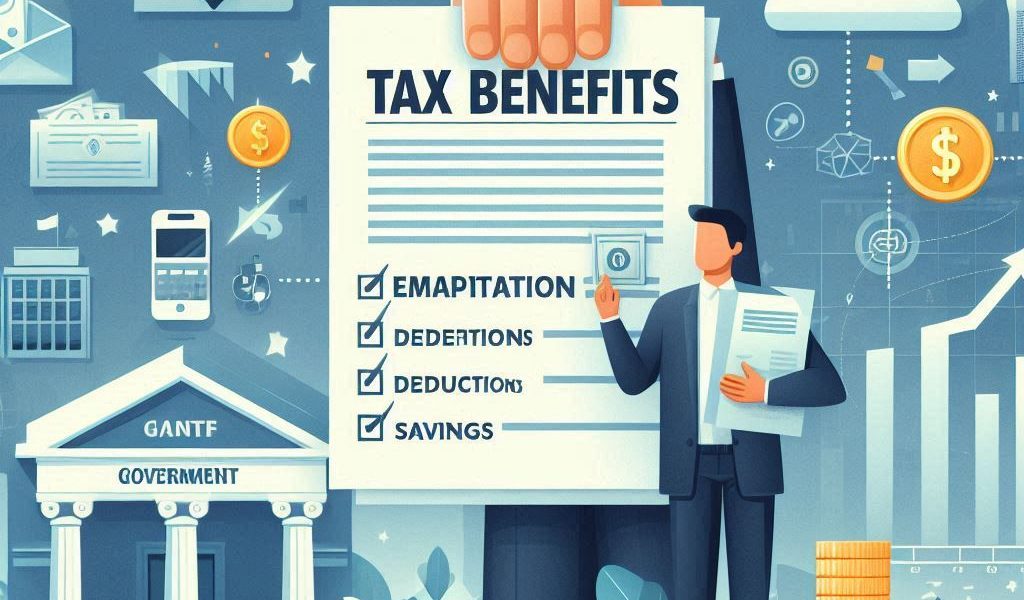Introduction
Startups and Micro, Small, and Medium Enterprises (MSMEs) play a vital role in economic growth by driving innovation, creating jobs, and enhancing competitiveness. Recognizing their importance, the Government of India offers several tax benefits and incentives to ease financial burdens and promote business sustainability.
This guide will provide a comprehensive overview of tax benefits for startups and MSMEs, eligibility criteria, and strategies to maximize these advantages while ensuring full legal compliance.
Understanding the Tax Benefits for Startups and MSMEs
Startups and MSMEs are entitled to various tax exemptions, deductions, and rebates under government schemes. These tax benefits help in reducing operational costs, improving cash flow, and promoting growth.
Some of the key tax benefits include:
- Income tax exemptions for startups under Section 80-IAC
- Reduced corporate tax rates
- GST relaxations
- Capital gains tax exemptions
- Deductions for research and development (R&D) expenses
- Benefits under the Presumptive Taxation Scheme
1. Tax Exemptions Under Section 80-IAC (For Startups)
To encourage entrepreneurship, the government introduced Section 80-IAC of the Income Tax Act, allowing eligible startups to claim 100% tax exemption on profits for three consecutive years within the first 10 years of incorporation.
Eligibility Criteria for 80-IAC
A startup must meet the following conditions to avail of this exemption:
- Be recognized by the Department for Promotion of Industry and Internal Trade (DPIIT).
- Be incorporated as a Private Limited Company or Limited Liability Partnership (LLP).
- Have an annual turnover of less than ₹100 crore in any financial year.
- Engage in innovation, development, or improvement of products, processes, or services.
- Not be formed by splitting or reconstructing an existing business.
How to Apply for the Tax Exemption?
- Register on the Startup India portal and obtain DPIIT recognition.
- Submit an application for Section 80-IAC tax exemption via the Income Tax Department.
- Provide supporting documents, including a business plan and startup recognition certificate.
2. Reduced Corporate Tax Rates for MSMEs
The Government of India has reduced corporate tax rates to support MSMEs:
- 25% corporate tax for companies with an annual turnover of up to ₹400 crore.
- 15% concessional tax rate for new manufacturing MSMEs registered after October 1, 2019, and commencing production before March 31, 2024.
This reduction enhances cash flow, allowing MSMEs to reinvest in business expansion.
3. GST Benefits for Startups and MSMEs
The Goods and Services Tax (GST) regime has simplified tax compliance for startups and MSMEs by introducing various benefits:
Composition Scheme for MSMEs
- MSMEs with an annual turnover of up to ₹1.5 crore can opt for the GST Composition Scheme.
- They pay lower tax rates (1% for manufacturers, 5% for restaurants, and 6% for service providers).
- Less compliance and quarterly return filing instead of monthly.
GST Exemption for Small Businesses
- Businesses with a turnover of up to ₹40 lakh (for goods) and ₹20 lakh (for services) are exempt from GST registration.
- Startups and MSMEs can avoid GST payments and filing if their turnover is below the threshold.
Input Tax Credit (ITC) Benefits
- Businesses can claim a refund on GST paid for raw materials, capital goods, and other expenses, reducing the overall tax burden.
- Startups engaged in R&D or manufacturing benefit significantly by reclaiming GST on machinery and infrastructure.
4. Capital Gains Tax Exemptions
Startups and MSMEs can avail of capital gains tax exemptions under the following sections:
Section 54EE – Exemption on Long-Term Capital Gains
- If a startup invests long-term capital gains (up to ₹50 lakh) in a government-specified fund, the tax is exempted for three years.
Section 54GB – Exemption for Investment in Startups
- If an individual sells residential property and invests in an eligible startup, capital gains tax is exempted.
- The startup must use the investment to purchase assets within one year.
5. Deductions for Research & Development (R&D)
Startups engaged in research and innovation can claim deductions under Section 35(2AB) of the Income Tax Act:
- 150% deduction on R&D expenses for companies recognized under the scheme.
- Includes expenses on patents, prototypes, and product development.
- Encourages technological advancements and innovation.
6. Presumptive Taxation Scheme for MSMEs
To simplify tax compliance, the Presumptive Taxation Scheme under Section 44AD and 44ADA applies to small businesses and professionals:
Section 44AD (For Small Businesses)
- Available for businesses with a turnover of up to ₹2 crore.
- Deemed profit of 6% on digital transactions and 8% on cash transactions.
- No need to maintain detailed books of accounts.
Section 44ADA (For Professionals)
- Available for professionals (doctors, lawyers, consultants, etc.) with gross receipts up to ₹50 lakh.
- 50% of gross receipts are considered taxable income.
- Reduced compliance and easy tax filing.
How to Maximize Tax Benefits?
To fully leverage tax benefits, startups and MSMEs should follow these strategies:
1. Ensure DPIIT Recognition
- Register on Startup India Portal to access tax exemptions, funding, and networking opportunities.
2. Maintain Proper Financial Records
- Keep accurate financial statements, GST filings, and invoices.
- Hire a professional accountant or tax consultant for compliance.
3. Opt for the Right Tax Scheme
- Small businesses should choose the Presumptive Taxation Scheme for easier compliance.
- Startups should claim 80-IAC tax exemptions.
4. Utilize R&D Deductions
- If involved in innovation, maintain records of R&D expenses for tax deductions.
5. File Taxes on Time
- Avoid penalties and maximize tax benefits by filing Income Tax Returns (ITR) and GST returns on time.
Conclusion
Startups and MSMEs play a crucial role in India’s economic development, and the government supports them through various tax benefits and exemptions. By registering under the Startup India Initiative, claiming GST benefits, availing capital gains exemptions, and opting for the right tax schemes, businesses can significantly reduce their tax burden and enhance profitability.




